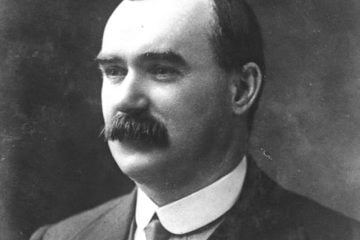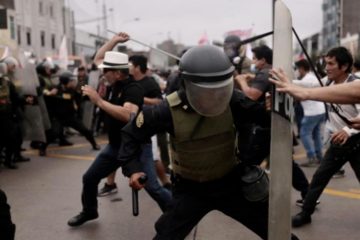Below is an article sent to the Marxist Student Federation by Jean-Francois Delaporte of Jonk Lenk (Young Left) in Luxembourg. It outlines, for British and other readers, the political situation in Luxembourg at the present time, with reference to the student movement.
————————————————————
Luxembourg is a country known for its banking “industry”, its low corporate taxes and its tax loopholes which let multi-nationals evade all their debts through Luxembourg. The system is built up so that all debts can be transformed into tax reductions, reducing the taxes to approximately 0%.
Although this has been the main source of income since the 1970s, Luxembourg traditionally had a strong industrial mining sector, this found a political expression in two large parties which still partially carry that legacy: the LSAP (Luxembourgish Socialist Workers Party), Luxembourg’s social-democratic party which played a big part in representing the industrial workers. The other one is the KPL (Communist Party Luxembourg), which was the traditional Marxist-Leninist party in Luxembourg.
Since the fall of the USSR the KPL’s popularity has constantly been declining, the only electoral base they still have is their narrow hardcore of traditional voters and protest voters. They are not represented in parliament.
After the fall of the eastern block a new faction developed out of the KPL, called Nei Lénk (New Left). This then developed into an autonomous movement and party called Déi Lénk at the end of the 90s. Déi Lénk also grouped together other small Trotskyist and Maoist movements into the party creating a unified left movement. This is the only Left alternative to social democracy in our parliament. Déi Lénk being the only real left-wing and non-neo-liberal party in parliament, it takes on the role of the Left opposition, trying to put through motions against austerity, TAFTA (TTIP) and other motions which defend our liberty and fight the reduction of our social programs.
This means that Déi Lénk has a hard time trying to promote the necessary change to a socialist society, as it is often occupied defending the social rights that have already been achieved. Déi Lénk managed to push the Luxembourgish government to recognize Palestine, and made the second largest city an official anti-TAFTA city.
Another organization is the youth organization Jonk Lénk (young left) which is independent from Déi Lénk, but supports a lot of Déi Lénk’s actions and also takes independent actions. Jonk Lénk has members that range from social democrats, through revolutionary socialists to left anarchists. Jonk Lénk was the first organisation to react to the recent Lux Leaks, taking a different stance from most others. They didn’t ask for national unity to support the banking sector, but demanded change and strict regulation of finance markets all over Europe.
The Luxembourgish parliament consists of 60 seats. 23 are occupied by the largest EPP party the CSV (Christian Social People’s Party); 13 by the LSAP and 13 by the neo-liberal DP (Democratic Party). 6 are taken by Déi Gréng (The Greens); 3 by the very conservative ADR (Alternative Democratic Reform party) and 2 by Déi Lénk. The ADR may not explicitly be a far-right party, but their voters range from center right populists to fascists, making it a very dangerous party in Luxembourg.
Traditionally the CSV always had a coalition with either the DP or LSAP. The first time this changed was 1974 when the LSAP and DP had a 31 seat coalition which managed to put through some socially progressive policies. At the end of 2013 Déi Gréng, LSAP and DP did the same thing and went into coalition together, giving the Left some hope of a change from neo-liberal policies. But the coalition turned out to be just another neo-liberal government like the previous ones.
The first action taken by the coalition was to cut student budgets causing the left-wing student union UNEL (National Luxembourgish student Union) and other organizations like Jonk Lénk to mobilise 17,000 students to protest against the cuts. This is a huge number when you keep in mind that the Luxembourgish population only consists of approximately 500.000 people. The UNEL is the union that has carried on the legacy of the ’68 movements, as part of being a radical student union, it has also campaigned on other topics like budget cuts, the abolition of the monarchy, pro-homosexual marriage and anti-racism.
The largest union in Luxembourg, which stems from the union that created the KPL, is called OGBL (Independent Federation of Workers Unions Luxembourg). It came from the Marxist movements at the beginning of the 20th century, but has become the union most associated with the social democratic LSAP. The OGBL’s active members range through the whole left spectrum; this can be seen from the printing house the OGBL owns. The printing house publishes the second largest newspaper in Luxembourg, the Tageblatt. This newspaper has been the most popular centre left newspaper, but has recently done a lot of work to promote Déi Lénk.
A lot of the class-consciousness that was traditionally developed in Luxembourg had been lost in the past period, a lot of people preferred to ignore the problems and profit off other people’s exploited labour instead of challenging injustices. But with some active left movements still partaking in the struggle and movements of the students in 2013, we are optimistic for the future: for real change towards a better society.




